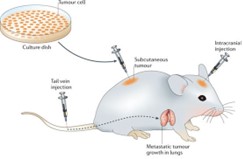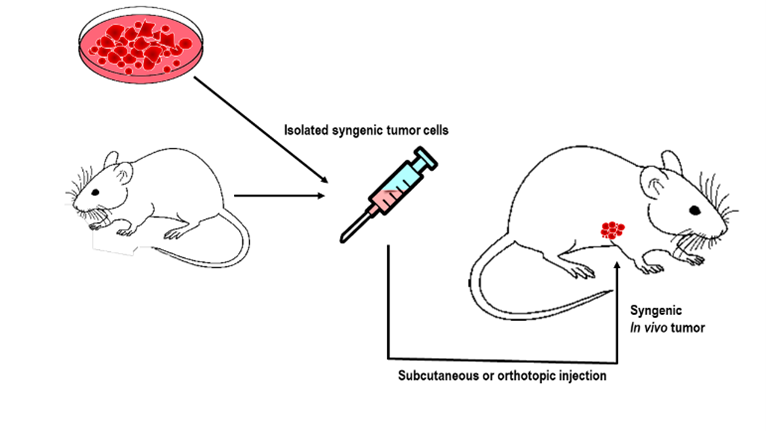Tumor Cancer Models
Tumor Cancer Models
Tribioscience provides a variety of tumor model services for screening the efficacy of new compounds.
Subcutaneous Tumor Models (Xenograft Models)
Xenograft models are the most frequently used for the evaluation of in vivo efficacy of novel anticancer drug candidates or compounds. Tumor cells are subcutaneously implanted on the flank of animals, mostly mice or rats, where they proliferate and form measurable tumors. The tumors can be further analyzed with In-vivo approaches and In-vitro assays.
Studies can be performed with cell lines and testing compounds provided by customers.
Orthotopic Tumor Models (Xenograft Models)
Orthotopic models are ideally suited to test the anticancer efficacy of new drug candidates. For this type of in vivo model, tumor cells are implanted into their organ of origin. The organ-specific microenvironment induces tumor growth similar to that of the original tumor. For these orthotopic models, luciferase-transduced cell lines are used to allow the assessment of tumor growth via bioluminescence imaging (BLI).
Orthotopic tumor models can be established with cell lines provided by customers.
Metastasis Tumor Models (Xenograft Models)
Metastasis tumor models are designed to analyze the anti-metastasic effect of novel anti-cancer drug candidates. For this purpose, luciferase-transduced tumor cells with high metastatic potential are either implanted orthotopically into their organs of origin, intravenously, or intracardially. Metastasis formation can also be analyzed with bone marrow engraftment models, where luciferase expressing leukemia cell lines are implanted intravenously.
Project Development
➀ Send Us Your Inquiry
Email to [email protected]
➁ Project Design
➂ Project Agreement
➃ Project start
➄ Study Report Delivery
Email: [email protected]
Phone: +1 (408) 498-0197
Address: 365 San Aleso Ave,
Sunnyvale, CA 94085










